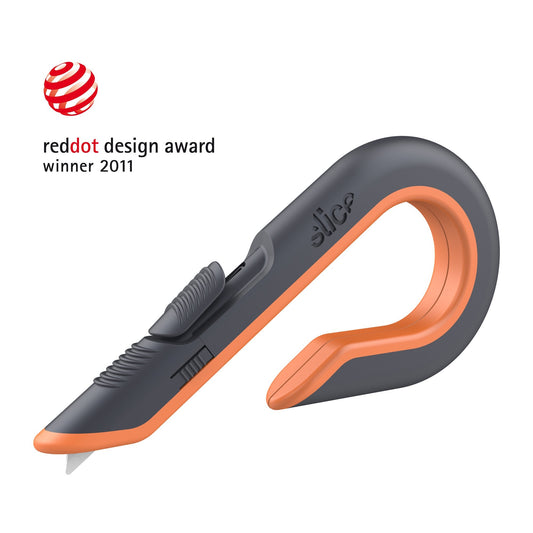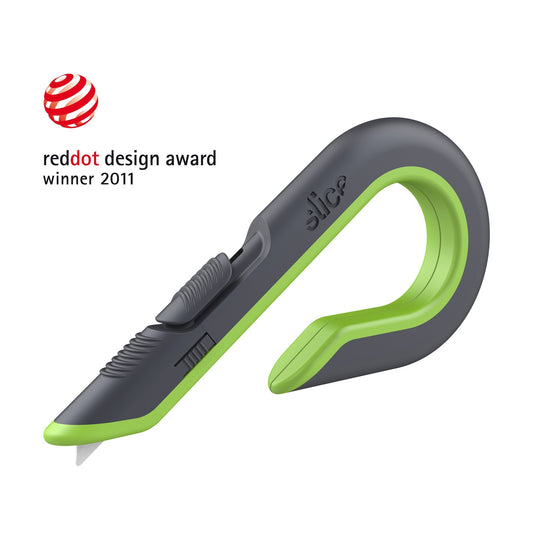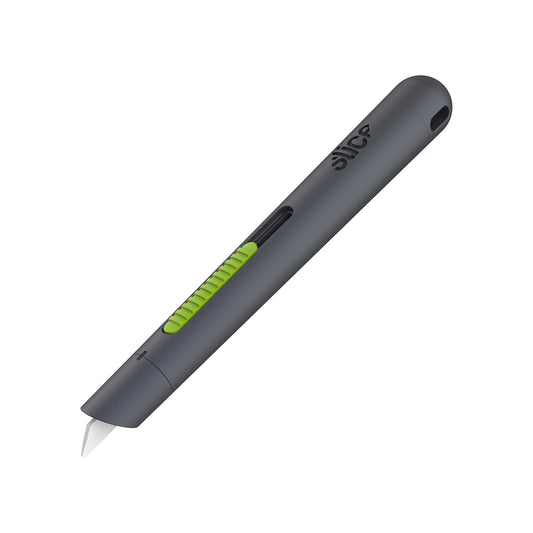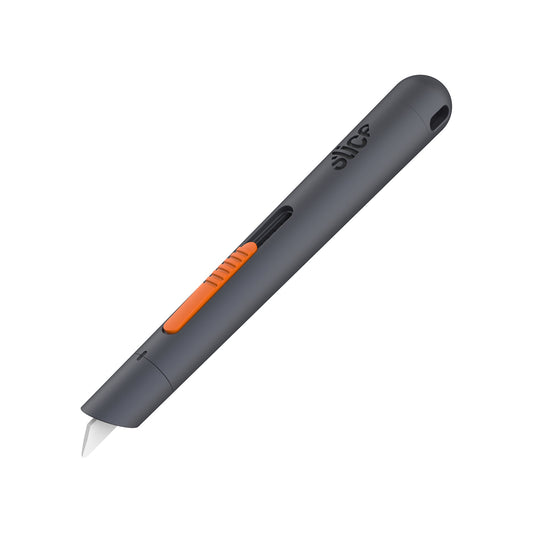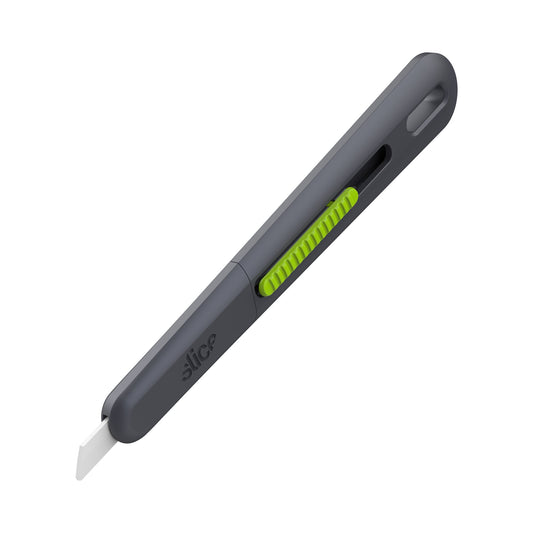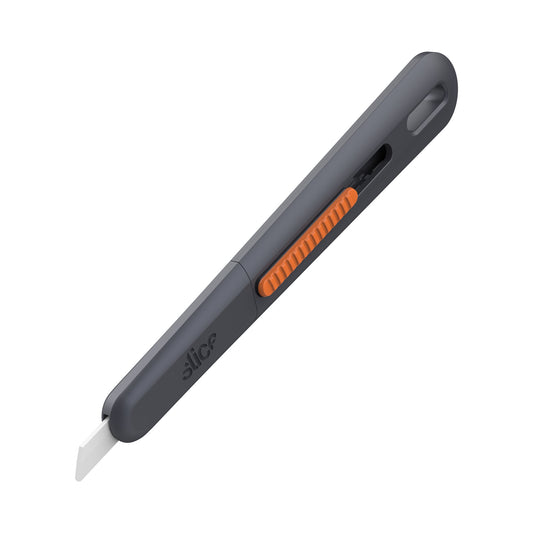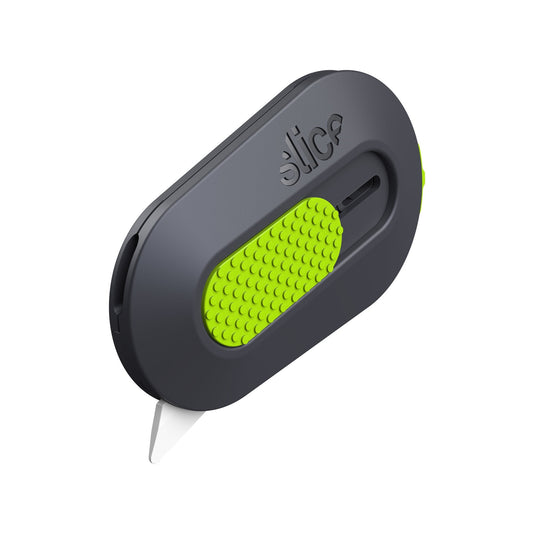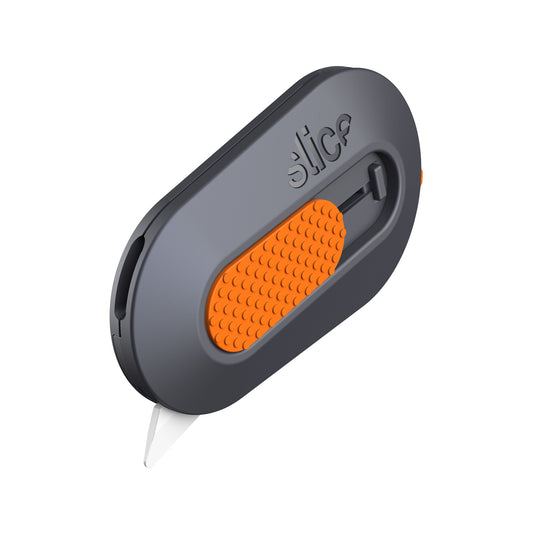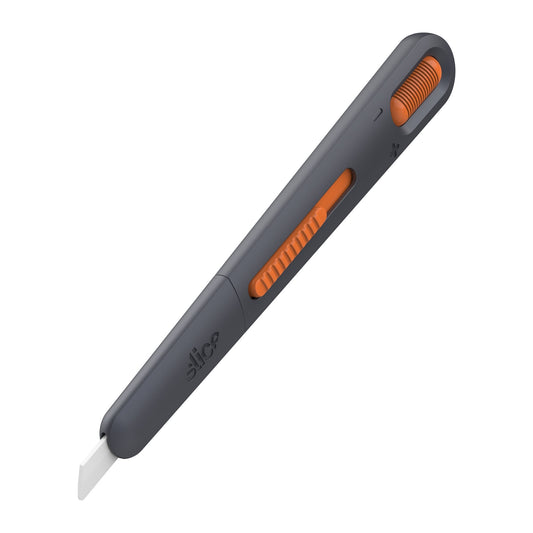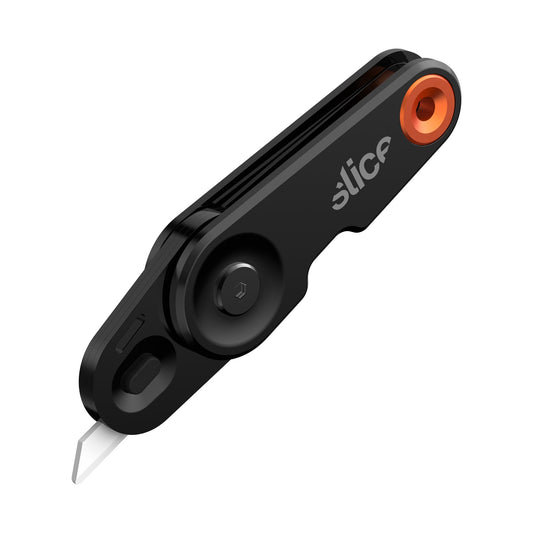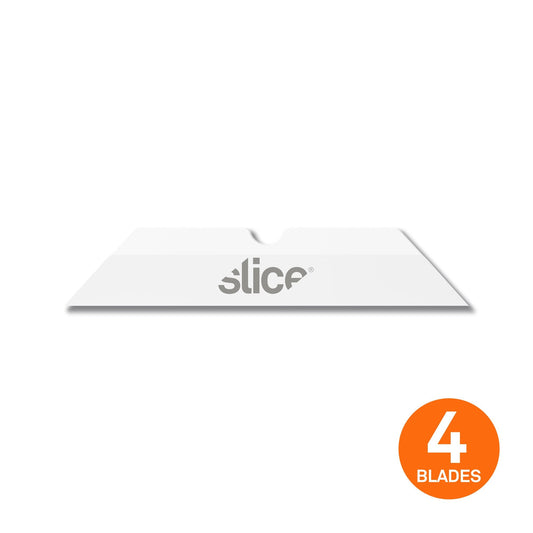SKU #10404
Cuchillas para cutter para cajas de cartón (punta redonda)
Las cuchillas para cutter para cajas de cartón 10404 de Slice® son compatibles con los cutters para cajas de cartón, con los lápices cutter y con los mini cutters. Estas cuchillas, fabricadas de óxido de circonio 100%, conservan su afilado 11 veces más que las de acero y cuentan con nuestro filo finger-friendly® patentado. Las cuchillas de seguridad de Slice no necesitan recubrimiento de aceite ni ningún mantenimiento especial, no producen chispas, no son magnéticas y nunca se oxidan. La punta redonda de la 10404 ofrece una protección extra ante las posibles lesiones por punción causadas de forma accidental. Cuando necesite un filo nuevo bastará con darle la vuelta a la cuchilla reversible.
- Tipo de cuchilla: punta redonda
- Más seguras que las cuchillas tradicionales
- Filo finger-friendly® que corta con eficacia
- Duran hasta 11.2 veces más que las cuchillas de metal
- Menos cambios de cuchilla = menos lesiones
- Reducen las lesiones y los costes
- No producen chispas, no conducen la electricidad, no son magnéticas
- Son químicamente inertes, nunca se oxidan
- Sin lubricantes ni aceites
- No necesitan contenedores para objetos afilados
- 100% reciclable
- La cuchilla es segura para trabajar entre -40°C y 1600°C
- Mangos compatibles: 10400, 10474, 10475, 10476, 10495, 10503, 10512, 10513, 10514, 10515
- 4 cuchillas de doble cara por paquete
- SKU #10404
Especificaciones del producto
Especificaciones del producto
Cutting Depth:
Material: zirconium oxide
Dimensions: L x W x H
Weight: 0.012 kg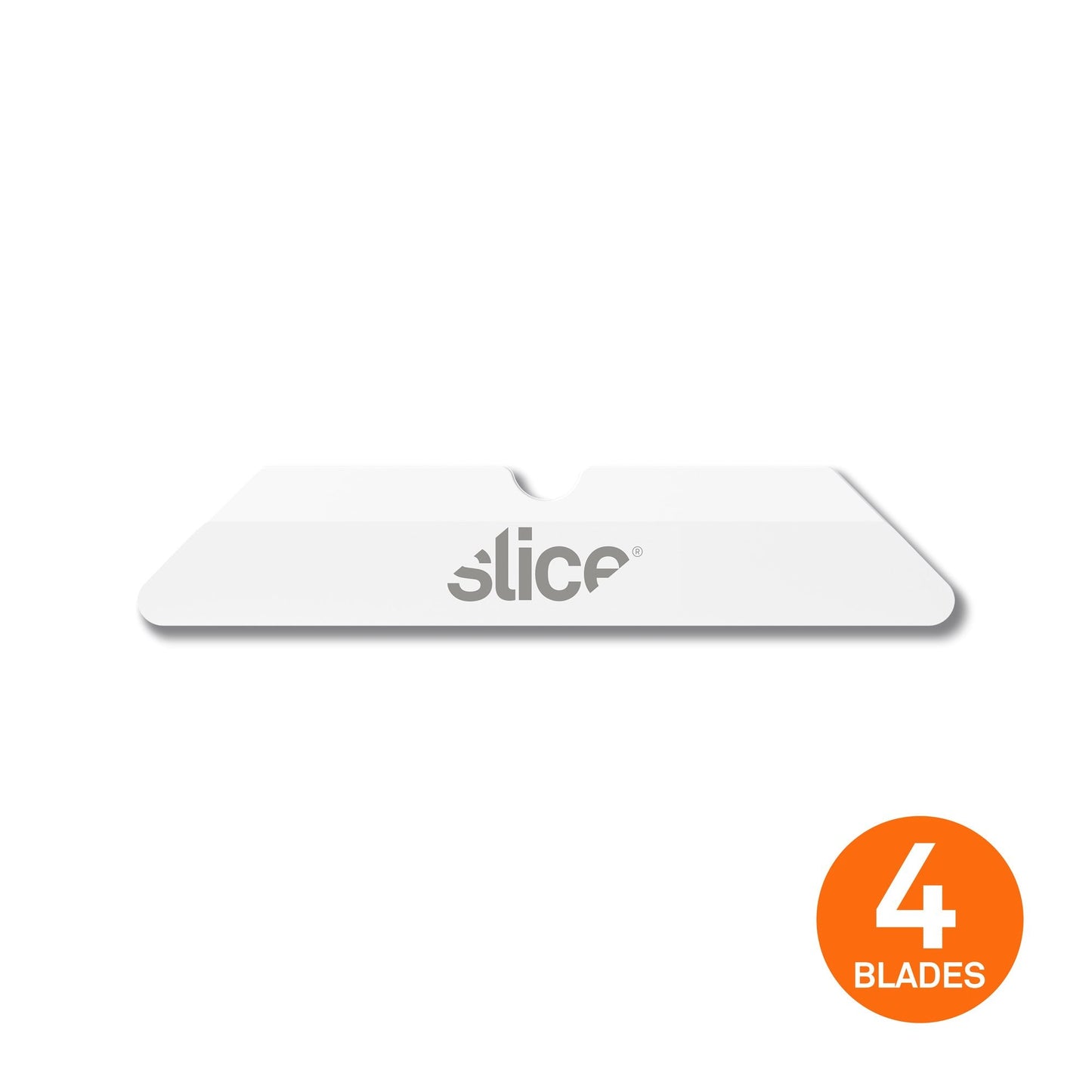
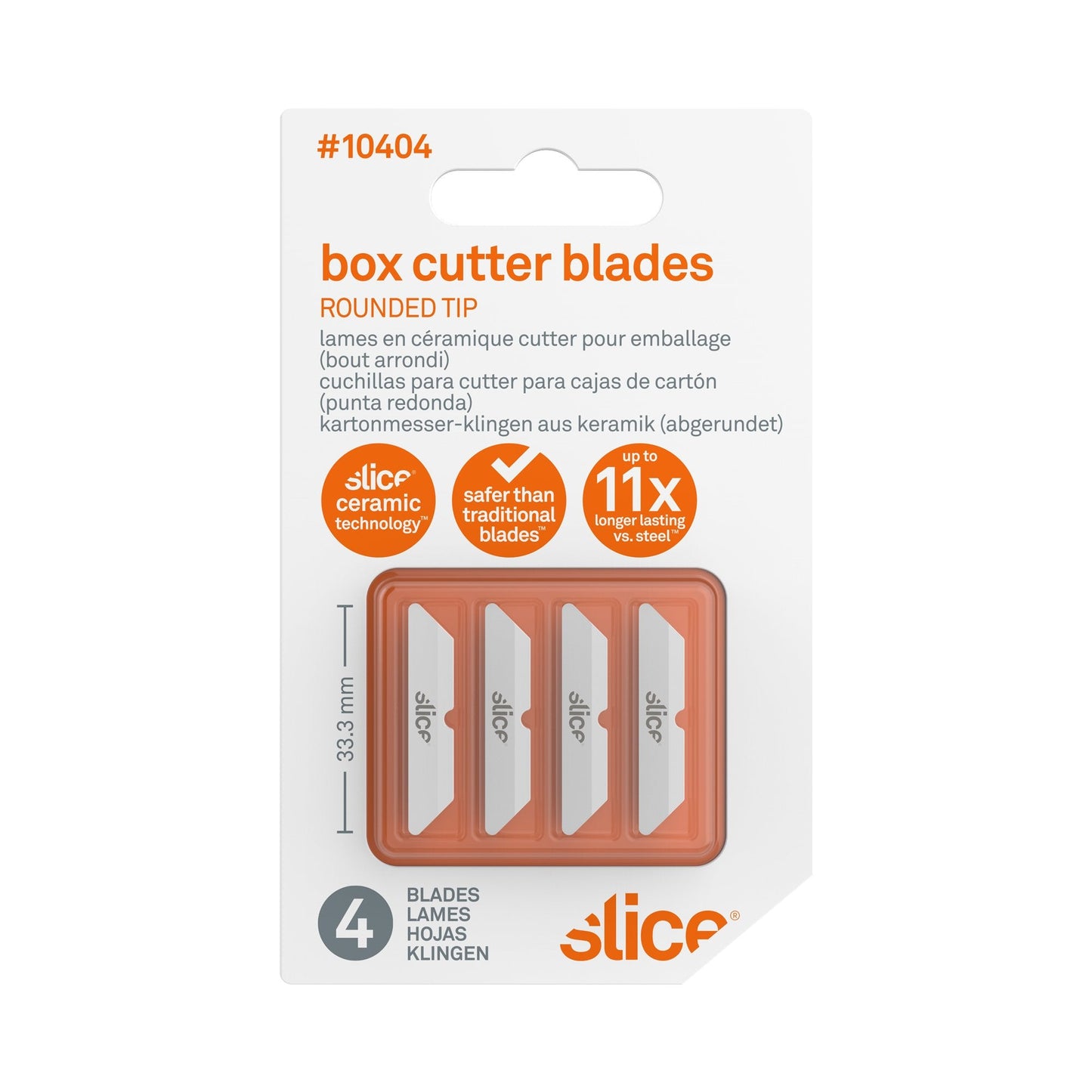
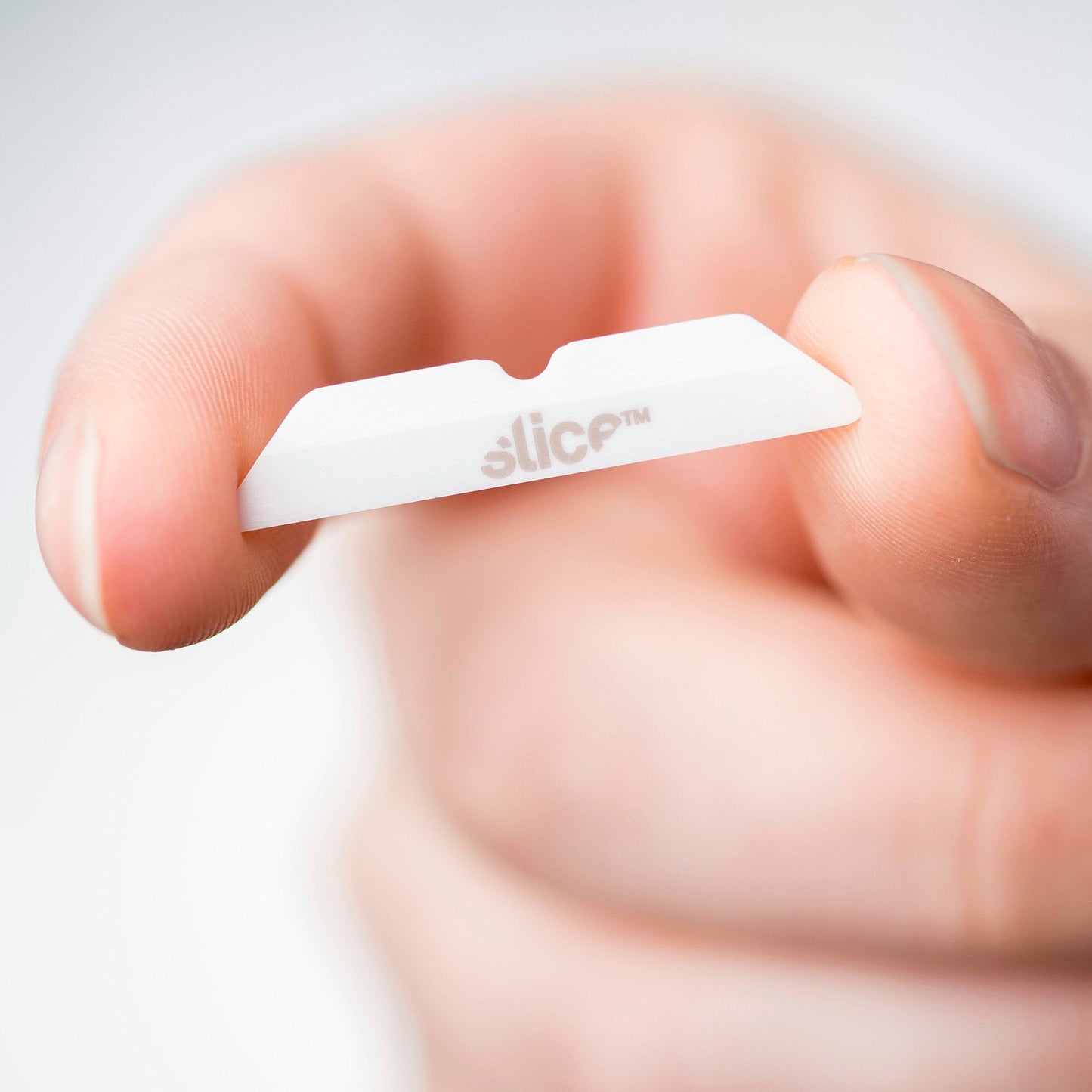
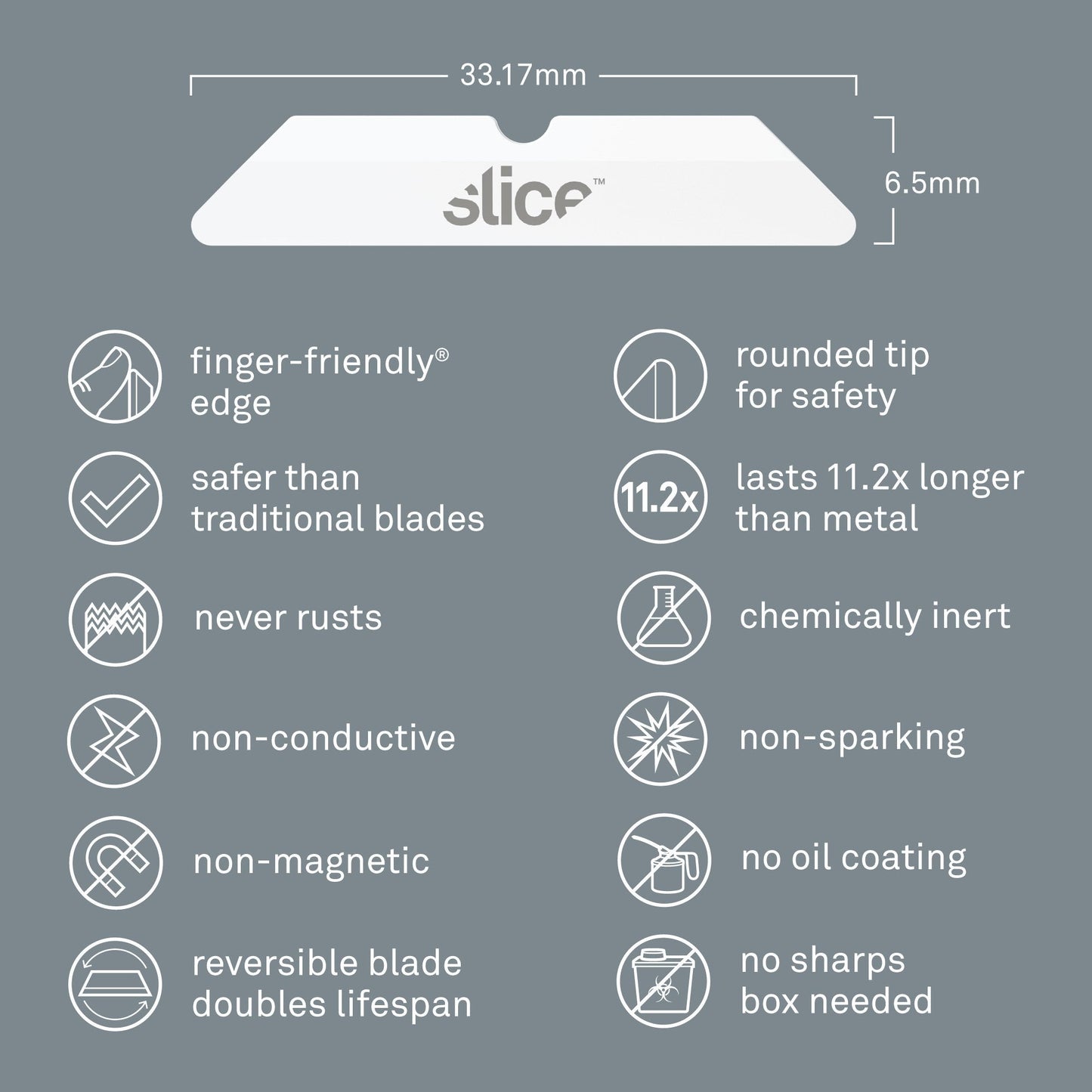
Productos compatibles
Vídeos
-
Box Cutter Blade Replacement
-
How To Cut Window Screen Using Slice Tools
-
The 10495 EDC Folding Knife: Blade Replacement
-
Mini Cutter Blade Replacement
Preguntas frecuentes
What Are Box Cutter Blades?
What Are the Important Box Cutter Safety Considerations?
Blade disposal is also important. If you're using dangerous traditional blades, a sharps box is essential. With Slice's rounded-tip finger-friendly® safety blades, you do not require a sharps disposal setup. Lastly, if safety is your most important concern, it makes sense to choose a rounded tip rather than a pointed tip. However, for some applications that require piercing to initiate the cut, a pointed tip is required. This may also necessitate sharps box disposal. Be sure to take this into account when choosing your blade.






